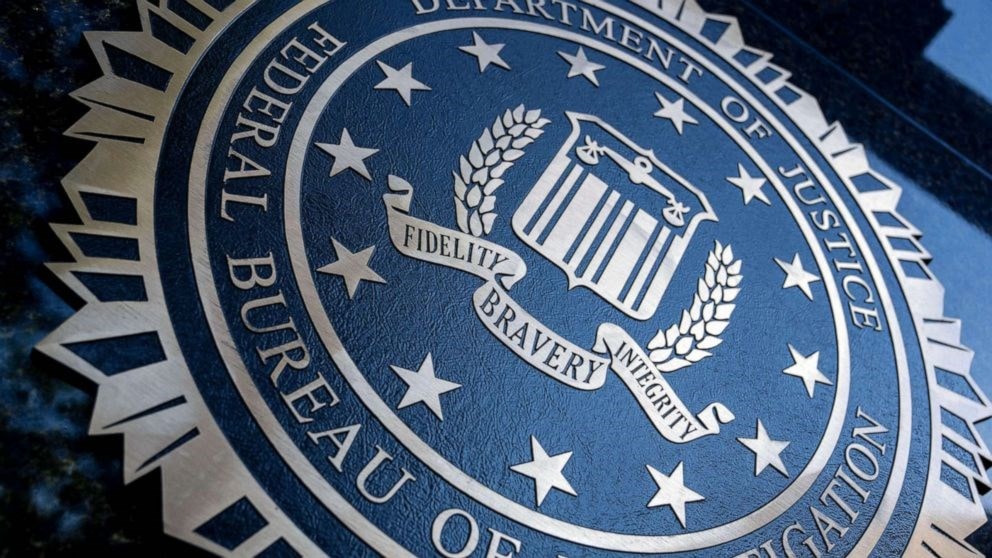FBI arrests intel worker over leak plot tied to Trump
A Defense Intelligence Agency employee was arrested for allegedly trying to leak classified documents to a foreign country, citing opposition to Trump’s policies.
-

A seal reading "Department of Justice Federal Bureau of Investigation" is displayed on the J. Edgar Hoover FBI building in Washington, DC, Aug. 9, 2022. (AFP via Getty Images)
An IT employee at the Defense Intelligence Agency (DIA) has been arrested for allegedly attempting to leak classified material to a foreign government, citing his disillusionment with former President Donald Trump and the direction of US policy.
The Department of Justice (DOJ) announced the arrest on Thursday, identifying the suspect as Nathan Villas Laatsch, who worked in the DIA’s Insider Threat Division.
According to court documents and an FBI affidavit, Laatsch reached out via email to what he believed was a representative of a “friendly foreign government,” offering to share sensitive intelligence data.
“The recent actions of the current administration are extremely disturbing to me,” he allegedly wrote, adding, “I do not agree or align with the values of this administration and intend to act to support the values that the United States at one time stood for.”
Unbeknownst to Laatsch, the recipient of his email was an FBI agent posing as a foreign official. The agency initiated a controlled sting operation to monitor communications and collect evidence.
According to the affidavit filed by Special Agent Matthew T. Johnson, the undercover agent replied, “Good afternoon, I received your message and share your concerns,” establishing a backchannel that led to the eventual arrest.
Laatsch, who served in a division responsible for detecting insider threats, was taken into custody on Thursday in northern Virginia after delivering materials to the undercover agent at a prearranged meeting location.
Laatsch cited Trump-era disillusionment in leak attempt
Documents filed with the court reveal that Laatsch expressed a calculated and ideological motivation for his actions.
“I’ve given a lot of thought to this before any outreach, and despite the risks, the calculus has not changed,” he allegedly wrote in further communications.
“I do not see the trajectory of things changing, and do not think it is appropriate or right to do nothing when I am in this position.”
He also reportedly told investigators that he had requested citizenship in the foreign country and no longer had confidence in the trajectory of the United States. His identity and affiliations with the intelligence community intensified concern over the risks of insider leaks.
Authorities did not disclose the exact nature or contents of the materials Laatsch attempted to share, citing national security concerns. However, the DOJ confirmed that the classified information had been handed over during a covert FBI meeting that followed a multi-week surveillance operation. He is expected to appear in federal court in Alexandria, Virginia, on Friday for his initial hearing.
The DOJ stressed the seriousness of the breach, particularly given Laatsch’s role in a unit specifically designed to monitor for insider threats within the intelligence apparatus.
DOJ, FBI warn of rising insider threat risks
“This case underscores the persistent risk of insider threats,” said FBI Director Kash Patel in a statement posted to X.
“The FBI remains steadfast in protecting our national security and thanks our law enforcement partners for their critical support.”
The investigation is being led by the FBI Washington Field Office, with assistance from DOJ prosecutors specializing in national security cases.
If convicted, Laatsch could face significant prison time under statutes governing the unauthorized disclosure of classified information.
The case adds to a growing list of recent incidents involving government employees accused of betraying national security protocols, often motivated by political or ideological grievances. The DOJ has signaled it will continue to prioritize these cases amid increasing polarization and institutional distrust across the US intelligence community.

 4 Min Read
4 Min Read










